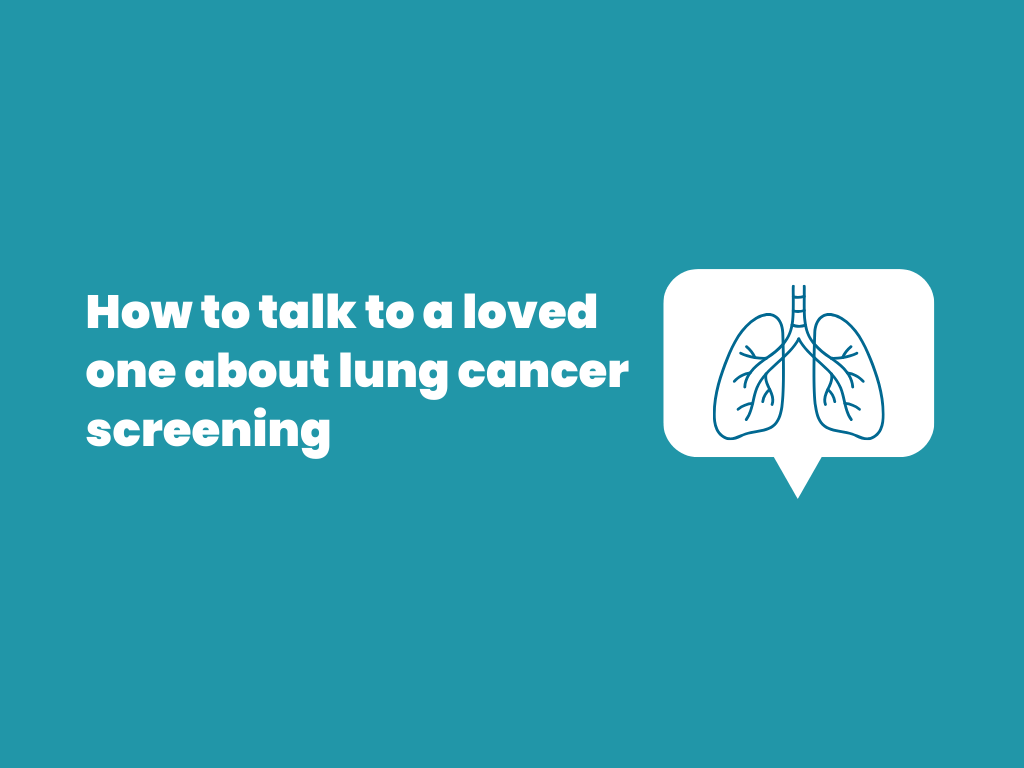
How to talk to a loved one about lung cancer screening
It’s not always easy to start a conversation about health, especially when it involves cancer. You might worry that bringing it up will sound pushy or scare the person you care about. But talking about lung cancer screening could be one of the most important conversations you have.
Screening helps find lung cancer early, often before there are any symptoms, when treatment is more likely to work well. If someone you love is at higher risk because of their age or smoking history, they deserve to know about this option and have your support in making a decision.
Here are some tips to help you talk about lung cancer screening in a way that is caring, respectful and effective.
Start with empathy, not pressure
Before you bring it up, take a moment to think about how your loved one might feel. They may be anxious about cancer or feel ashamed about smoking. Some people avoid talking about screening because they are afraid of what might be found.
You can begin gently, for example:
“I know this isn’t always an easy topic, but I care about you and wanted to share something that could really help.”
or
“I read about lung cancer screening and thought it might be worth talking about together.”
Share simple, clear information
Many people don’t realise that screening is meant for people who feel healthy but are at higher risk. You can explain that:
- Screening is usually recommended if you are between 55 and 74 years old and you smoke now or used to smoke, with a history of at least 20 pack years – this means smoking the equivalent of one pack of 20 cigarettes a day for 20 years.
- Screening uses a low-dose CT scan. This is a type of X-ray that takes detailed pictures of the lungs. The scan is quick, painless and uses only a small amount of radiation.
Listen without judging
Give your loved one space to share how they feel. They might have worries about what will happen if something is found, or they might feel guilty about smoking. Let them know it is normal to feel that way.
You don’t have to have all the answers. Just listening and showing you care can make a big difference.
Offer to help with next steps
If your loved one is open to learning more, you can offer to help:
- Look up reliable information together
- Find out where screening is available locally
- Help them talk to their doctor or nurse
- Go with them to appointments if they would like company
Even small practical support, like helping with transport or filling out forms, can make screening feel less overwhelming.
Be patient and follow up gently
Some people need time to think about screening or talk it through with others. If they are not ready to decide, respect their feelings and offer to come back to it later.
You could say:
“I understand this is a lot to take in. If you want to talk more another time, I’m here.”
Focus on care, not blame
Remember, no one should feel ashamed for having smoked. Tobacco products are highly addictive, and stopping is not easy. Screening is not about blame or judgment. It is about taking a positive step to look after your health.
Ways you can help
Talking about lung cancer screening is not always simple, but it can make a big difference. By approaching the conversation with empathy, clear information and support, you can help your loved one feel more confident about deciding what is right for them.
If you are ready to start the conversation, but you are unsure where to start, you can also ask a healthcare professional for advice and resources to guide the discussion.
Remember, showing you care and being there to help can mean a lot. Every small step can help your loved one feel supported and informed.
For more information, check the following articles:

